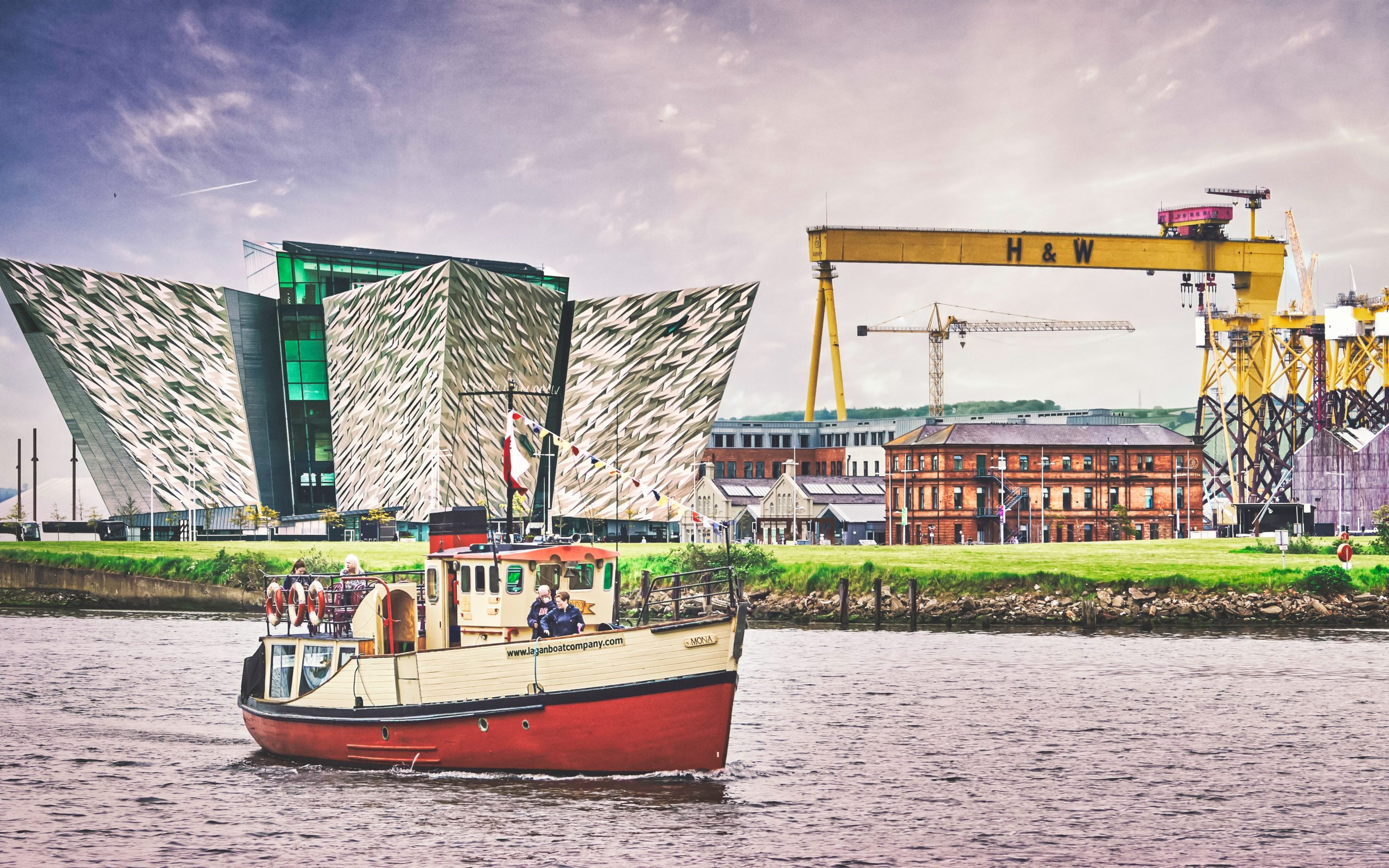The Economist David McWilliams is married to a Presbyterian from Belfast, so his latest article for the Irish Times might get him a frosty reception at his next dinner with the in-laws. In the article, he outlines his view that partition has been a disaster for Northern Ireland.
Take, for example, emigration which has always been a good indicator of economic frailty. Between 1841 and 1951, the population of what would become the Republic’s 26 counties fell by 55 per cent compared to just 17 per cent in the six counties of Northern Ireland, underscoring how advanced the northeast’s economy used to be. If we go back to 1907, two-thirds of the industrial output of the entire island of Ireland came from the six counties that would go on to become Northern Ireland, with activity largely centred on Belfast. This was where all Irish industry was located. Ulster was industrial and innovative; northern entrepreneurs and inventors were at the forefront of industrial innovation. By 1911, Belfast was the biggest city in Ireland with a population of 386,947 — comfortably outstripping that of Dublin at 304,802. Belfast was also growing rapidly. The northeast was by far the richest part of the island.
According to the 1911 all-island census, Protestants in Ireland accounted for 26 per cent of the total population, yet occupational returns suggest that they made up an outsized 40 per cent of the industrial workforce. In 1926, manufacturing accounted for just 7 per cent of employment in the Republic compared with 29 per cent in Northern Ireland. For most other small European countries at the time, manufacturing employment stood at about 25 per cent, reinforcing just how backward and poor the Republic would have seemed to northerners.
As a result of this, a myth evolved that the North was always — at least until very recently — economically more advanced than the South. Equally, it has regularly been argued that staying with the UK is the right thing to do for their back pocket, possibly because of the UK’s ongoing subvention to the Northern economy. However, ongoing subventions hinder an economy from standing on its own two feet and thus, over time, it will become completely dependent on handouts, as Northern Ireland is today. If it were asked to pay for itself today, with a budget deficit of 27 per cent of GDP, Northern Ireland wouldn’t last a day.
From a great start 100 years ago, unionism has blown it. The truth is the union has been an economic calamity for Northern Ireland. All the people have suffered, Catholic and Protestant, unionist and nationalist. Today, the formerly backward South (despite our many failings) operates in a completely different economic sphere to the North. The Republic’s economy is today roughly six times larger than the North’s, generated by a workforce that is only 2½ times bigger. The median income per head in the Republic is €43,915 versus €33,550 across the Border — that’s 30 per cent higher and the gap is widening.
BUT Brexit has been our saving grace:
Northern Ireland is the only part of the UK economy, apart from London, to have a higher level of income today than before the pandemic. The main reason Northern Ireland is doing well is that it is on a different island, powered by a far more energetic economy: the Irish economy. We are dragging the North up relative to the low-growth, low-productivity, low-income UK. In the period between January and April 2022, exports to Northern Ireland from the Republic went up by 40 per cent compared with the same period in 2021, according to the Central Statistics Office’s latest figures. Obviously, the key difference between Northern Ireland and the rest of the UK regions is the protocol, the opt-out that allows the North to have an economic foot in both camps.
As we know the unity debate is more emotional than rational, but will the prosperity arguments sway the middle ground voters who will ultimately decide the result of a border poll?
I help to manage Slugger by taking care of the site as well as running our live events. My background is in business, marketing and IT. My politics tend towards middle-of-the-road pragmatism, I am not a member of any political party. Oddly for a member of the Slugger team, I am not that interested in daily politics, preferring to write about big ideas in society. When not stuck in front of a screen, I am a parkrun Run Director.
Discover more from Slugger O'Toole
Subscribe to get the latest posts sent to your email.
